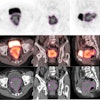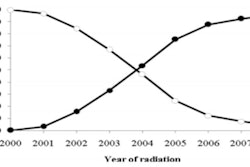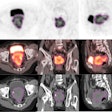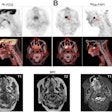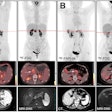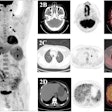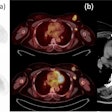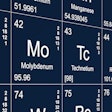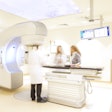TORONTO - While healthcare institutions in the U.S. may point to institutional policies that encourage staff to report errors, radiation therapists and medical dosimetrists surveyed at these institutions say they are concerned about possible retaliation when reporting errors.
Data from a national survey from University of North Carolina (UNC) Hospitals, presented at the International Society of Radiographers and Radiological Technologists (ISRRT) meeting, showed that nearly a third (29%) of radiation therapists feared repercussions, such as loss of their job, if they were to report errors.
While medical dosimetrists were less fearful of retaliation, the fear still does exist. And most disturbingly, the survey found that 13% of sites reported having no error-reporting system in place at all.
Key professionals
Getting insight into the opinions and attitudes of radiation therapists and medical dosimetrists is crucial to understanding the mindset that might prevent the reporting of radiation therapy mistakes when they occur, said Robert Adams, assistant professor at the university's department of radiation oncology, who led the survey.
"Medical dosimetrists and radiation therapists are well-positioned to prevent and detect errors," Adams said. "We wanted to look at [error reporting] from the perspective of people on the front lines doing the work."
The response to the survey makes the data "truly representative" of what is going on in the radiation therapy/medical dosimetry landscape throughout the U.S., Adams said. The study is currently being replicated in Canada, he added.
"One question is if this fear implicates us in patient safety," Adams noted.
The 27-item survey was mailed to a random sample of 1,500 radiation therapists and 528 medical dosimetrists in the U.S. There are 20,000 radiation therapists and about 4,000 medical dosimetrists in the U.S., according to Adams.
A Likert scale was used to determine if an error-reporting system existed at healthcare institutions, as well as to measure the quality of communication between the survey respondents and physicians and administrators at the institutions, and respondents' perceptions of obstacles to error reporting.
A total of 356 (24%) radiation therapists and 190 (36%) medical dosimetrists responded to the survey. The majority of radiation therapists who responded (304, or 87%) said there was an error-reporting system in place at their institution, and 164 (88%) medical dosimetrists said the same.
"We were quite astounded that 13% of institutions had no [error-reporting] system in place," Adams said. "Can you imagine the airline industry not having a system for reporting errors?"
A total of 102 (29%) radiation therapists who responded said fear of reprimand was a major obstacle to reporting. "That was very significant, and it's not good news," said Adams in an interview. "The percentage was much higher than we ever anticipated."
The survey found that just 14 (9%) medical dosimetrists expressed the same fear of reprimand.
"For medical dosimetrists, it was a little different," said Adams, noting that medical dosimetrists cited poor communication as the leading obstacle to reporting errors. "Fear was not that great, but poor communication appeared to be an issue in reporting errors."
Both groups felt that overall communication with administrators in their department was not strong: 38% of radiation therapists and 39% of medical dosimetrists strongly agreed it was good.
Interestingly, 88% of radiation therapists said they agreed or strongly agreed that they were encouraged to report errors in the clinic. There may be an attribution bias at play that unfairly places blame on radiation therapists, Adams speculated.
The survey found that 54% of radiation therapists who responded said they are blamed more than 75% of the time if a mistake is made, but only 13 (9%) medical dosimetrists had the same perception about blame.
"They [radiation therapists] are at the bottom of the hierarchy, and they are the ones giving the most care to the patient," he said.
When asked if they had been personally reprimanded or if there was adverse action taken for reporting an error, 54 (16%) radiation therapists answered affirmatively to the question. Nine (5%) medical dosimetrists responded positively to the question.
In addition, 103 (29%) radiation therapists responded that other radiation therapists or medical dosimetrists at their clinic had faced reprimands for reporting an error. Among medical dosimetrists who responded, 16 (8%) reported the same.
Adams recommended that both radiation therapists and medical dosimetrists view their accountability as being foremost to their patients.
"You are ultimately responsible for the care of the patient," he said. "To do that correctly, you need to be assertive."



